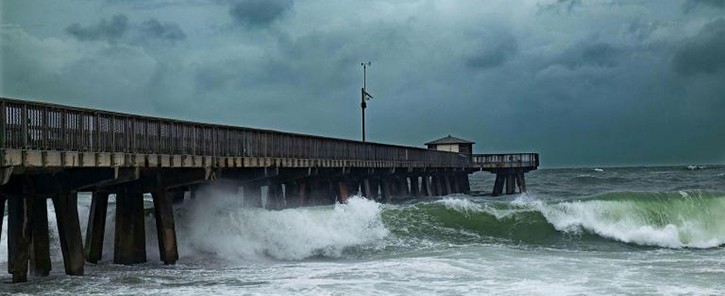
You Knew It Was Coming: Hurricane Matthew Amnesty

Never missing an opportunity to offer illegal immigrants reprieve, the Obama administration has repeatedly used inclement weather, a virus, natural disasters and tainted water in a U.S. city to extend the perk in the last few years. This month the administration announced yet another special amnesty for victims of Hurricane Matthew.
The powerful storm slammed the southeastern United States a few weeks ago, killing dozens and causing severe flooding. News reports have confirmed deaths in North Carolina, Florida, South Carolina, Georgia and Virginia. Entire communities from central Florida to Virginia suffered power outages, major flooding and a lot of homes are still uninhabitable. There’s no disputing that Hurricane Matthew had a devastating impact in the region and its effects will linger for some time. This may call for federal emergency help, but amnesty?
The government is calling it “immigration relief” that may help people affected by unforeseen circumstances, including natural disasters such as Hurricane Matthew. Among the relief measures that will be available are work permits, “change of nonimmigrant status or extension of nonimmigrant stay” for those in the U.S. illegally and forgiveness for immigrants who blew off deportation court hearings. Thanks to Hurricane Matthew this violation is now being referred to in the following manner: “Those who received a Request for Evidence or a Notice of Intent to Deny but were unable to appear for an interview, submit evidence or respond in a timely manner.” Thanks to the hurricane, the government will offer these individuals “assistance.” Furthermore, United States Citizenship and Immigration Services (USCIS), which sustains itself largely with customer fees, will waive the fees “due to an inability to pay,” caused by the storm, of course.
A few years ago, the Obama administration took advantage of Hurricane Sandy to waive immigration laws, including for violators of student visas like most of the 9/11 hijackers. The official announcement, issued by USCIS, stated that the government “understands that a natural disaster can affect an individual’s ability to maintain a lawful immigration status.” Among the benefits of that hurricane amnesty was “expedited adjudication of off-campus employment authorization applications for F-1 students experiencing economic hardship.” Hurricanes in other countries have also benefitted illegal aliens in the U.S. who happen to be nationals of the affected regions, even though they don’t live there.
Other natural disasters abroad have also resulted in special reprieves for illegal aliens in the U.S. Earlier this year the administration implemented a special earthquake amnesty for Ecuadorean nationals living in the U.S. illegally and the word spread like wildfire in Spanish media reports published throughout Latin America. Officially this is known as Temporary Protected Status (TPS), a humanitarian measure designed to temporarily shield illegal immigrants from deportation during emergencies. In a Spanish announcement, the Department of Homeland Security (DHS) stated that it was helping Ecuadoreans in the U.S. by granting them work permits and waving visa fees of candidates show that their financial situation was hurt by the earthquake a continent away.
In the last few years Obama has granted Ebola amnesty for illegal aliens from Liberia, Guinea and Sierra Leone, earthquake amnesty for Haitians, hurricane amnesty for Hondurans and Nicaraguans and “ongoing armed conflict” amnesty for nationals of Yemen, an Islamic Middle Eastern country well known as an Al Qaeda breeding ground. Earlier this year the administration rewarded illegal aliens in the Southern and Midwestern United States “severe weather” amnesty due to the flooding that battered the region and forced rivers from Texas to Illinois to surge out of control. Let’s not forget the water amnesty rewarded to illegal aliens in Michigan in February. That reprieve was implemented after pro-immigrant Spanish media outlets demanded that DHS refrain from enforcing immigration laws in areas of Flint affected by a crisis in which the areas water got contaminated with lead from decaying old pipes.
















